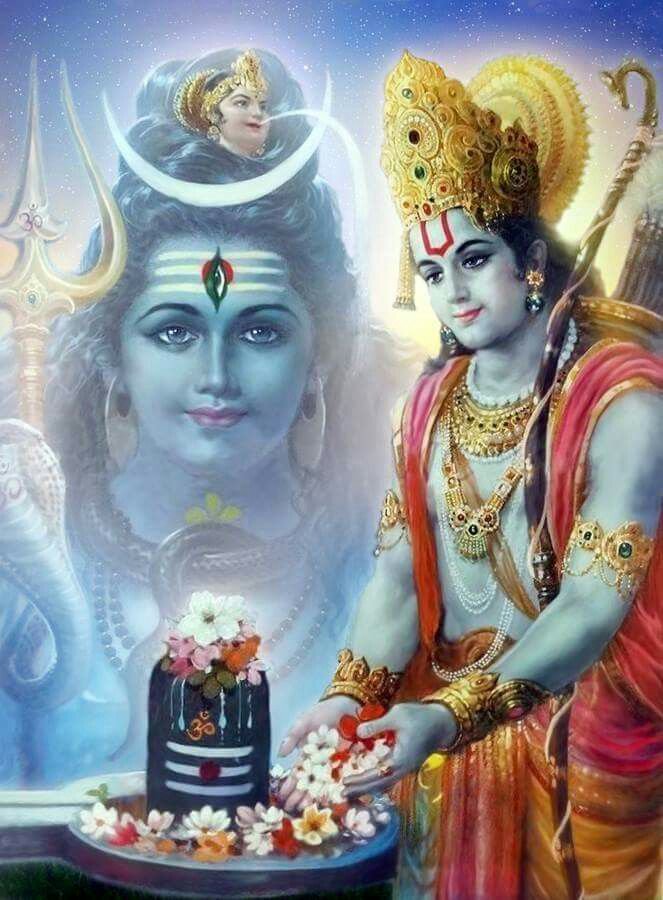Monotheism: “It is done. All paganism and devilish heathenry have been eradicated from God’s green earth.”
Polytheism:


Monotheism: “It is done. All paganism and devilish heathenry have been eradicated from God’s green earth.”
Polytheism:

Religion is only a sensitive topic if you see religion as inviolable. It’s always a fun (and fulfilling topic) to talk about, if you ask me. Polytheists do it all the time!
“Gurl, your Athena statue needs a new peplos. That one looks so 2016.”
“Dude, Ogun seems to like rhum. I wonder if Hephaistos would, too.”
“This year’s Durga Maa murti is rocking that crimson saree, YAAAS!”
When two polytheistic cultures meet, they compare (and often also share) their gods and traditions. It’s more about commerce than it is about competition—inclusion, not exclusion. That all religions are at each other’s throats cannot be farther from the truth in polytheism. There’s never an argument about whose god is true or false because they’re all true. Obviously. Plurality and multiplicity echo throughout the cosmos and this is evident in polytheist thought.
“Y’all should worship the One True Thor—YOUR ZEUS IS FALSE!” … said no polytheist ever. “There is no jealousy in the divine chorus”, as Plato put it.

Krishna worships Shiva with no issues. Olympians pray to other Olympians. It’s called polytheism.
Now, it doesn’t take a genius to know which religions have been the exact opposite of everything above. But that’s not for here.

I’m jumping on the bandwagon: it’s #ThrowbackThursday! (It’s unclickable, don’t bother.)
A while ago in 2008, when the Neokoroi mailing list was bustling with people, I shared an online conversation I had with an atheist colleague with the group. Soon, a couple more polytheists added their responses, and so Brandon thought that it might make for an interesting article. He made a somewhat imaginary conference between the atheist, himself, and another Hellenist, and posted it over his blog.
Much has changed after 6 years, of course. Brandon now identifies as a fully naturalistic pagan and Todd is, well … I don’t exactly know what Todd is right now, to be honest. Regardless, the message still applies: polytheism is a lot more than having “many gods”; it’s having a radically different mindset towards the world, and it’s unfortunate that its voice isn’t heard as often as it should.
I’m also brewing a more updated article, but for now, enjoy below’s re-post (with some of my own ideas added):
The Atheist Interviews Todd Jackson, Brandon in Japan (and Aldrin)
(a somewhat imaginary conversation)
Atheist – Thanks for taking the time to speak about your polytheism. Honestly, I really have no idea what your beliefs are and how it is different from traditional theism.
Brandon – I’ll try to answer as best I can, speaking only for myself, of course.
Aldrin – I’m assuming that your idea of “traditional theism” is Abrahamic monotheism; theism of that sort and traditional polytheism couldn’t be any more different from each other. Although both “theistic” by name, their definitions of theos (god) are in stark contrast with each other: each views the concept of divinity in a radically different light.
For one, polytheistic deities are (usually) not omnipotent, omniscient, omnibenevolent–or omni-anything, really. And they don’t have to be. Hitchens and company are right to criticise the idea of an omni-deity: it is neither sensible nor particularly useful to us. This makes the ‘problem of evil‘ mostly a monotheistic question.
Atheist – If you could elaborate on your belief… Like your version of the Nicene creed.
Todd – This isn’t a credal religion. Hellenismos varied from city to city, and from era to era, over at least hundreds of cities and 1500 years. This creates a need for experience, for experiment. Instead of creed, Hellenismos has philosophy, myth, and prophecy – each of which requires interpretation. This process is the prehistory of modern science.
Brandon – Yes, as Todd said, it’s not a credal religion. It’s an orthopraxy (emphasis on practice) rather than an orthodoxy (emphasis on belief). I work with my gods, rather than believing in them per se. Let me explain that a bit:
For me there’s a crucial difference between “believing in” and “working with” the gods. Strictly speaking, I don’t believe in the gods, I suspend disbelief. Then I work with them as if they were distinct, real-existing entities, just seeing what happens. Philosophically this view is called Pyrrhonian Skepticism: in the absence of compelling evidence for or against a claim, the rational thing to do is suspend belief either way, and carry on in a spirit of inquiry.
I find that polytheism provokes a powerful response in me. Perhaps it is psychological, perhaps not. Whatever it is, it provokes a clearer and more compelling response than henotheism, duotheism, monotheism, etc. Being able to address a deity as a distinct, unique being in the world, not unlike a person, accesses something very basic and primitive. Call it anthropomorphism and I won’t argue. It may very well be. At any rate, as a result, more of my being is stimulated in ritual. It just comes more natural, and provokes a more holistic response. And it allows for a more steady, grounded focus.
But again, that’s just my belief, and I wouldn’t say it’s necessarily prevalent among the majority of polytheists.
Atheist – Are your gods sentient? Influence the earth today? Answer prayers? Make themselves known to men and women?
Todd – Yes, yes, yes and yes.
Brandon – I work with them that way, yes.
Atheist – What makes you think they exist instead of say, the Hindu gods?
Todd – You’re expressing this in Abrahamic formulas. The ancients, whether Hellenic, Egyptian, Indian or other, did not understand themselves as “following different religions” or even, necessarily following different Gods. It was always understood that the God spoken of as Dionysos in Hellas might be known under other names elsewhere.
And it was always understood that when one experiences the presence of a God and names that God Apollon, one is being only relatively accurate; the Gods cannot be fully known. So that Hellenismos means not yielding to a dogma – on faith – but walking into a vocabulary, inserting oneself into that vocabulary.
Brandon – And exclusivity is not implied. Just because the Greek gods exist, it doesn’t mean other gods don’t. Furthermore, we are not duty-bound to worship gods just because they exist. Quite to the contrary, we worship the ones that call to us, or that we feel called toward, and that we establish a relationship with. So even though we worship Greek gods, we don’t have to also worship Hindu gods, Chinese gods, and so forth.
The precise relationships between gods of different peoples gets complicated. All kinds of theories have been proposed through the ages, and in the end it comes down to your personal interpretation. As Todd said, some ancient Greeks–though not all–were inclined to believe that foreign gods might be the same Greek gods worshipped under different names. Other polytheists, such as the Egyptians, saw god-names as able to be combined and separated somehow, sometimes worshipped as Amon-Ra, other times as Amon and Ra. So, it’s complicated enough just comparing different polytheistic traditions. If you throw monotheist traditions in there too, where some traditions are making mutually exclusive claims, then it really gets fun.
Atheist – Are they still gods in the traditional sense then?
Brandon – That depends what the traditional sense is, I suppose. If that means classical monotheism, where gods are characterized by omnipotence, omnipresence, and omniscience, then no they are not that way. If the traditional sense just means real-existing beings, in some respect outside the self, rather than some manner of allegory or archetypal expression wholly within the self, then yes, they are gods in that sense.
Atheist – Is it deistic?
Brandon – Again, that depends on the meaning of deistic.
If deistic just means theism again, i.e. divine beings really existing, as opposed to an atheistic or agnostic or other view, then yes, they are deistic.
If deistic means deism, i.e. a divine creator that does not interfere in the laws of nature, then no, they are not deistic. Mythically speaking, polytheist gods may or may not have created the world (in many traditions they just gave it its current order). They do act in the world. “Interfere” would be an unfair word though. IMO they are part of the world, not unlike us. They don’t stand outside of nature, like a divine watchmaker. They grow out of it, just as we do. And when they act, they act through the laws of nature, not against them. For just about any phenomenon that a polytheist might express in divine terms, there can likely be found a “natural” or “scientific” explanation, without reference to deity. The difference IMO is what happens to the polytheist as a result of his/her working with divine terms–the “powerful response” mentioned above. This, in polytheist terms, is a divine blessing received, the power of communion.
There may be those who believe in miracles in the strong sense, as the impossible happening, divine will as against the laws of nature. But I know nothing of that. I speak for myself.
Atheist – Well, thank you for your opinions.
Brandon – Hope that helps.
Todd – In the Gods.
Aldrin – Thanks for having us.
Gamer, Powerlifter, Polytheist
The ramblings, musings, and thoughts of a polytheist, animist, Heathen, astrologer, and however many other labels are applicable.
essays on polytheism, minimalism, and everything in between
on magic and shenanigans in the Philippines
Anglo-Saxon Heathenry and Roman Polytheism
A witchy woman wandering toward divine wonders
a trade route religion
A little space in honour of Mercury and Rosmerta
For things I'd never say out loud
Diaries of a Hellenic Polytheist
Nerdy Astrology and Esoterica
My thoughts and ramblings on polytheism, sometimes in general, sometimes on Hellenic polytheism specifically.
an experiment
A wayfarer's path
where words grow like leaves
Religion and Culture for the Intellectually Impatient
casually talking about business matters
The Musings of Galina Krasskova
Breaking down mystical practice and crafting new ritual tech.
Where the Starry Bull thiasos gathers
The gods, spirits and heroes of Southern Italy and Sicily
Observations on Philippine English and the 100+ languages Filipinos speak
Life, Death, & the Polytheist Revival
Comunidad Odinista de España-Ásatrú
A blog for fans of J.R.R. Tolkien, from complete beginners to avid enthusiasts, exploring the author's imaginary world, influential writing and cinematic adaptations.
A Polytheist's Blog
from the pen of Merit
I know. I was disappointed when I found out, too.
Star Wars as an Icelandic saga, and other fun with Old Norse.
Alexandria Reborn
Poetry and Essays
Vignettes from a multi-lingual, multi-cake-eating freelance existence
Languages | Linguistics | Travel
Heathen Spirit Worker
Marking Our Time on Earth
rants, raves and randomness
A Modern Polytheist's Constantly-Evolving Spiritual Journey
New Shoots from Stony Soil
Prayers to Heathen Gods
Musings and mantic mumblings from a Hellenic priestess, writer and woods witch.
All spiritual life begins with a sense of wonder, and nature is a window into that wonder. - Richard Louv
Ramblings, dry humor, and the occasional informative piece from a crazy wolf
The Rhetoric of a Hard Polytheist
A Buddhist husband-of-Freyr and his meanderings.
You must be logged in to post a comment.